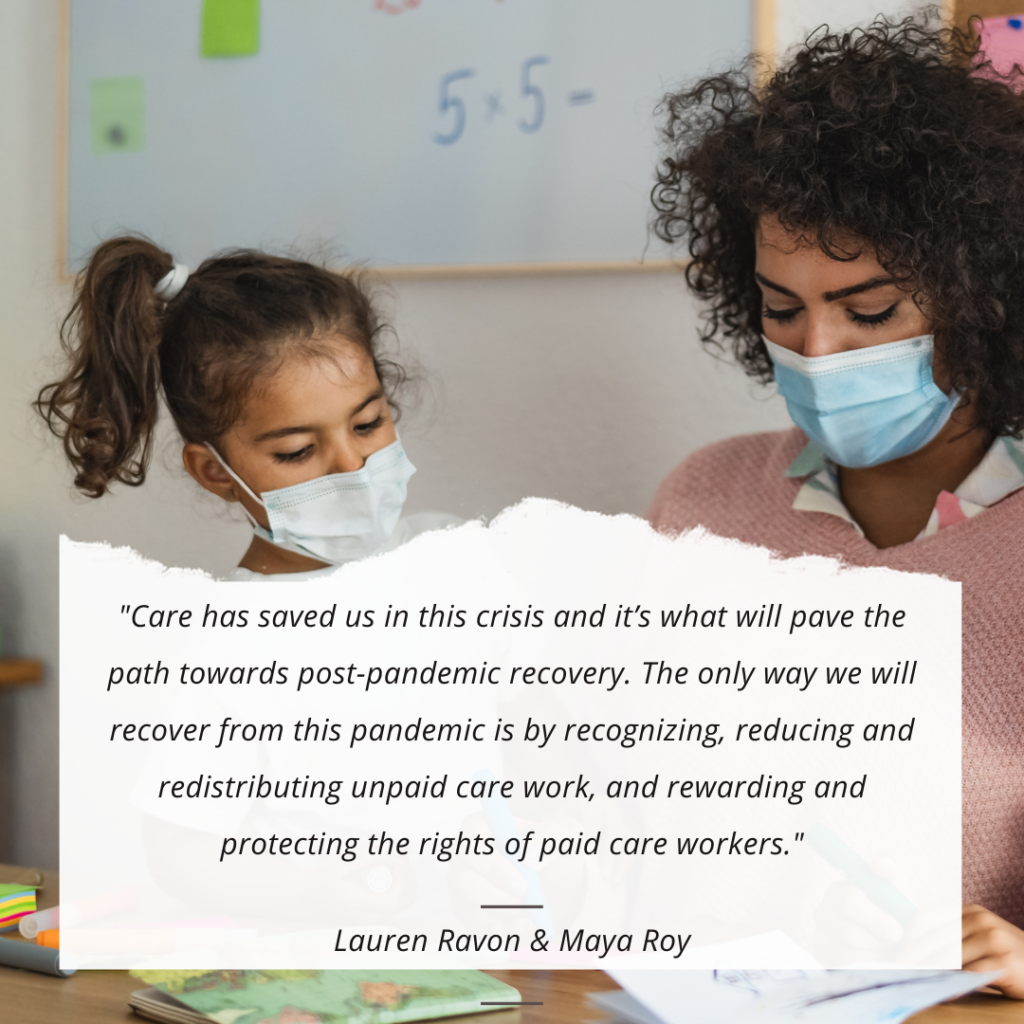Women are at a breaking point.
They have been on the frontlines of the pandemic response representing over 80 per cent of Canadian health-care workers. At the same time, they have experienced rampant job losses, reductions in pay and the devastating rise in gender-based violence. On almost every issue, women have been bearing the brunt of the COVID-19 pandemic.
On top of that, the rise in unpaid care work has been crushing, especially child care. Extended school closures, the shuttering of child care centres and the general lack of care services is forcing women out of the workforce in droves. Across the country, according to RBC Economics, 12 times as many mothers compared to fathers are leaving their careers to care for their children, especially women with young children. This is part of the reason why women’s labour market participation in Canada has dropped to levels not seen since the 1980s.
But unpaid care work is more than just child care. It’s also taking care of seniors, people living with disabilities and people living with chronic health issues. It includes activities that allow daily life to function like cooking and cleaning. Unfortunately, despite the essential role it plays in society, this care work is often invisible, undervalued and performed disproportionately by women facing multiple forms of marginalization such as Black, Indigenous, and other racialized women, women with disabilities, migrant women and newcomers.
This is not a uniquely Canadian issue. Analysis from UN Women and other agencies has seen a similar scenario play out in countries across the world like Bangladesh, Maldives, Pakistan, the Philippines and the United States of America.
The care deficit is a global crisis. Even before the pandemic, the International Labour Organization highlighted that over 2.1 billion people were not getting the care they needed. And it’s often women who are filling in the gaps. Internationally, women contribute three times as much unpaid care work compared to men. This unpaid care work amounts to a staggering $11-trillion USD or represents nine per cent of the global GDP.
As activists in the global movement to advance gender equality and advocates for an intersectional feminist approach to COVID-19 recovery, we’ve seen how essential care work is to keeping the economy running and supporting communities. Care is critical infrastructure. Just like a lack of equitable access to vaccines anywhere is a threat to people everywhere, a lack of investment in the care economy in some of the world’s poorest countries endangers our collective global economic recovery. We must bring the level of urgency and ambition that we have brought to the world-wide COVID-19 vaccination campaign to our investment in the care economy if we truly want to build back better.
The time for talk is over. We have spent the last year and a half relying on women’s unpaid and underpaid care work to keep society and the economy afloat during the pandemic.
